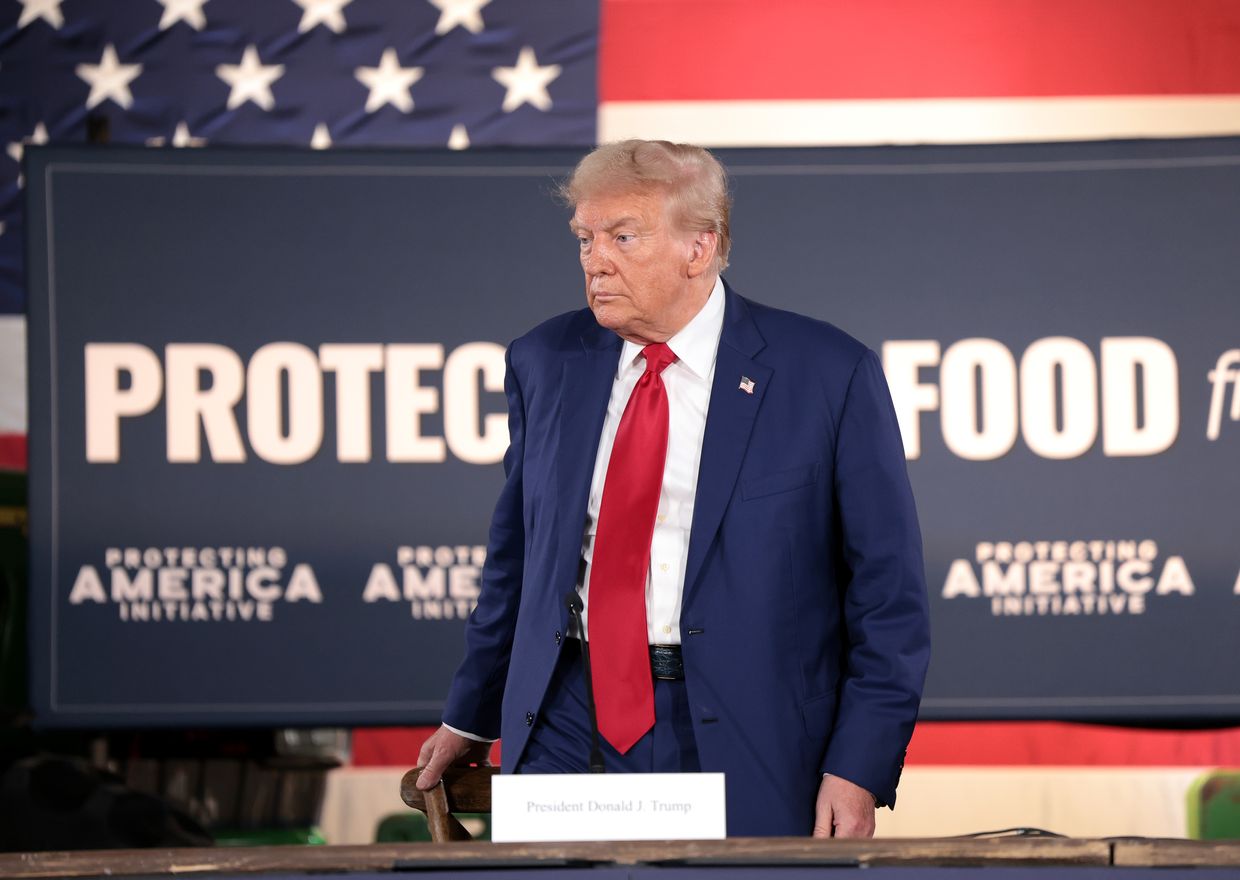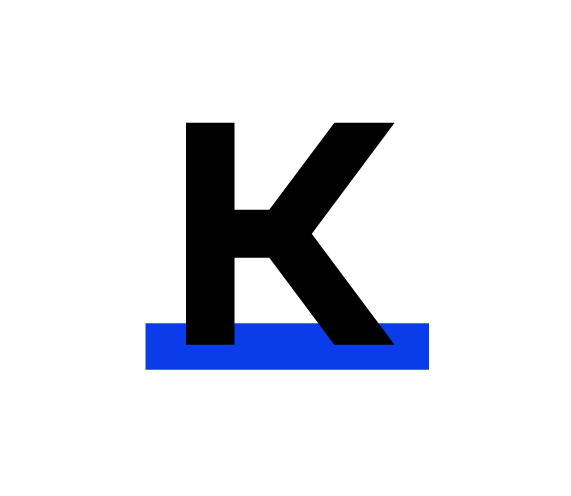Key developments on Feb. 19:
- Trump calls Zelensky 'dictator,' warns of Ukraine's demise without elections
- Reported drone strike against Russian oil refinery in Samara Oblast causes fire
- Ukraine refutes Putin's claims of Russian offensive from Kursk Oblast
- North Korean troops in Russia reportedly told they're fighting South Korean forces
- EU ambassadors agree on 16th package of Russia sanctions
- US promises Europe to maintain sanctions against Russia at least until Ukraine peace deal, Bloomberg reports
- Putin would 'gladly' meet Trump, says war in Ukraine should be 'worked out' in advance
- Lithuania's president unveils 6-point plan to support Ukraine, strengthen European security
U.S. President Donald Trump called Ukrainian President Volodymyr Zelensky a "dictator" in a post on his social media platform Truth Social, accusing him of refusing to have elections, and repeating false claims about the war in Ukraine.
"He refuses to have elections, is very low in Ukrainian polls, and the only thing he was good at was playing (former U.S. President Joe) Biden 'like a fiddle,'" Trump wrote.
A Feb. 19 poll by the Kyiv International Institute of Sociology (KIIS) showed that 57% of Ukrainians trust Zelensky, a five-point increase since December.
Trump also called the Ukrainian president "a dictator without elections," saying that "Zelensky better move fast, or he won’t have a country left."
Kremlin propaganda has pushed the narrative that Zelensky is an illegitimate leader, relying on the premise that his first presidential term was originally meant to end on May 20, 2024.
But Trump's claim ignores the fact that Ukraine's constitution prohibits elections during martial law, which has been in effect since Russia's full-scale invasion began in 2022. As a result, Zelensky's term has been extended, which constitutional lawyers argue is permitted under Ukrainian law.
Trump also referred to Zelensky as a "modestly successful comedian" and accused him of persuading the U.S. to spend $350 billion on Ukraine.
"The United States has spent $200 billion more than Europe, and Europe's money is guaranteed, while the U.S. will get nothing back," the U.S. president claimed.
Trump has repeatedly made unsubstantiated and contradicting claims about the value of assistance the U.S. has provided to Ukraine, most recently putting the figure at $350 billion.
Trump earlier said that he wanted the U.S. to be paid back for its assistance to Kyiv with a deal for Ukraine's natural resources. The U.S. president claimed the deal would be worth $500 billion, and that Kyiv had "essentially agreed to it." It was unclear where the $500 billion figure had come from.
Earlier on Feb. 19, Zelensky said Ukraine's wartime military costs had totaled $320 billion, with the U.S. and EU combined providing $200 billion of that sum in defense support.
"We, the people of Ukraine, (covered) $120 billion, the U.S. and the EU — $200 billion. We are talking about arms; this is a weapons package worth $320 billion," Zelensky said in Kyiv.
Trump's remarks follow his Feb. 18 statement that Ukraine "should hold new elections," appearing to blame Zelensky's leadership for the ongoing war.
He also claimed, without evidence, that Ukraine should hold elections due to Zelensky’s supposed "4% approval rating."
In response, Zelensky addressed the statements, calling them disinformation and saying they had come from Russia. "We understand it comes from Russia. We understand, and we have evidence that those figures have been discussed between the U.S. and Russia."
His comments come amid growing concerns in Kyiv after U.S. and Russian officials met in Saudi Arabia — without Ukraine — to discuss strategies for ending the war.
In reference to the Saudi Arabia talks, Zelensky said that the U.S. has effectively helped Russian President Vladimir Putin escape years of isolation.
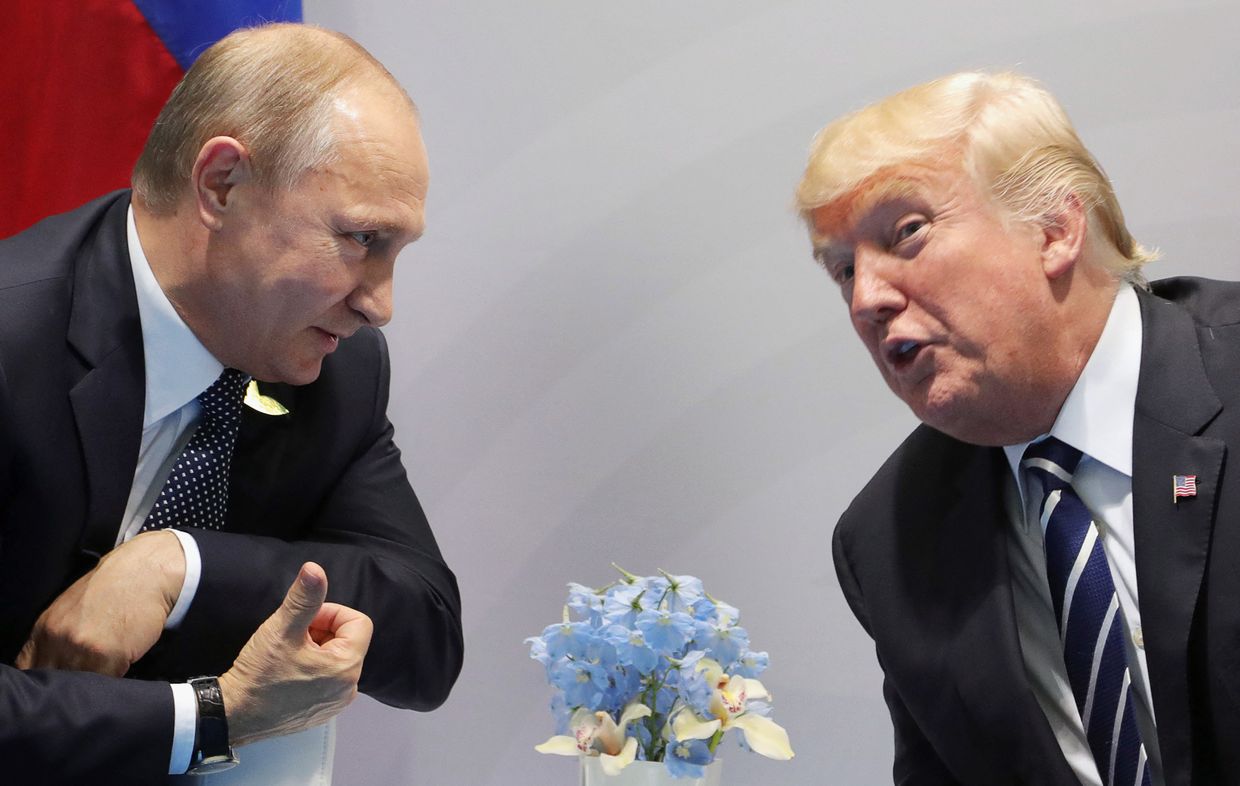
Reported drone strike against Russian oil refinery in Samara Oblast causes fire
Drones attacked the Syzran Oil Refinery in Russia's Samara Oblast overnight on Feb. 19, Governor Vyacheslav Fedorishchev reported on his Telegram channel.
Residents posted videos on social media purportedly showing a large blaze at the refinery. Sounds of explosions were reported at around 2:45 a.m. local time.
The strike reportedly caused a fire at the refinery. There were no casualties, according to Fedorishchev.
The Kyiv Independent could not immediately verify the claims.
The Syzran Oil Refinery, lying around 700 kilometers (430 miles) from the Russia-Ukraine border, was opened in 1942 and belongs to the Russian state-owned oil company Rosneft.
The facility "has a processing capacity of 8.9 million tons of oil per year," said Andrii Kovalenko, the head of Ukraine's Center for Countering Disinformation.
"Its products include fuel, aviation kerosene, and bitumen," Kovalenko said while reporting on the attack.
Ukraine considers Russian oil facilities to be valid military targets, as fossil fuel profits supply Moscow's war machine. The Ukrainian military has launched repeated attacks against Russian refineries with long-range drones.
In less than two months of 2025, at least 17 Russian oil facilities were attacked by drones, according to the independent Russian Telegram news channel Astra.
On Feb. 17, Ukrainian drones, operated by the Special Operations Forces and Security Service of Ukraine (SBU), hit the Ilsky Oil Refinery in Krasnodar Krai and the Kropotkinskaya oil pumping station in the Kavkazsky district of Kuban.
The pumping station was taken out of operation due to the strike.
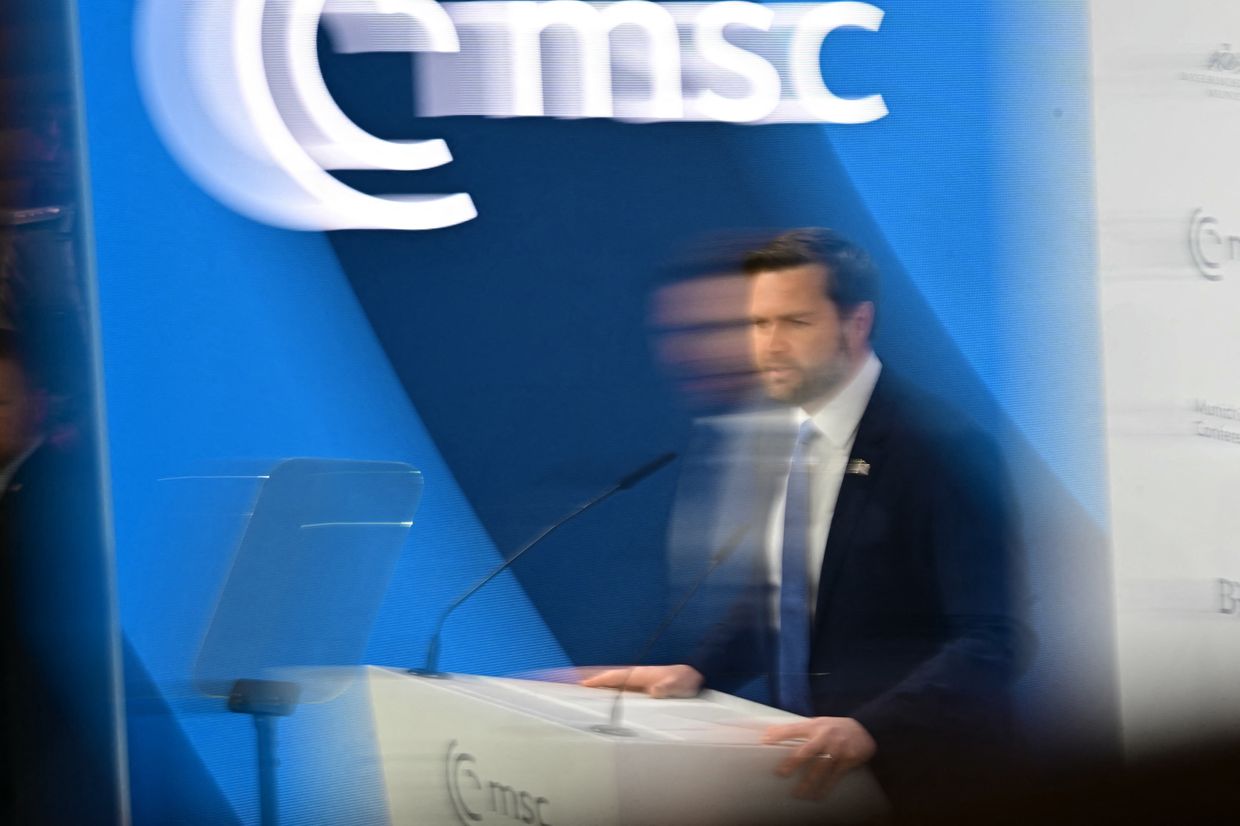
Ukraine refutes Putin's claims of Russian offensive from Kursk Oblast
Ukraine's General Staff refuted claims by President Vladimir Putin that Russian troops had launched an offensive into Ukraine from Kursk Oblast, spokesperson Dmytro Lykhovyi said on Feb. 19.
Putin told Russian media on Feb. 18 that Russian forces had crossed into Ukrainian territory from Kursk Oblast, a claim Lykhovyi has dismissed as part of a disinformation campaign.
"Since the beginning of the day, 12 combat engagements have been recorded in Kursk Oblast, three of which are still ongoing, while the rest have been repelled," Lykhovyi said.
During one of the attacks, Russian troops attempted to advance toward Ukraine's state border, according to Lykhovyi.
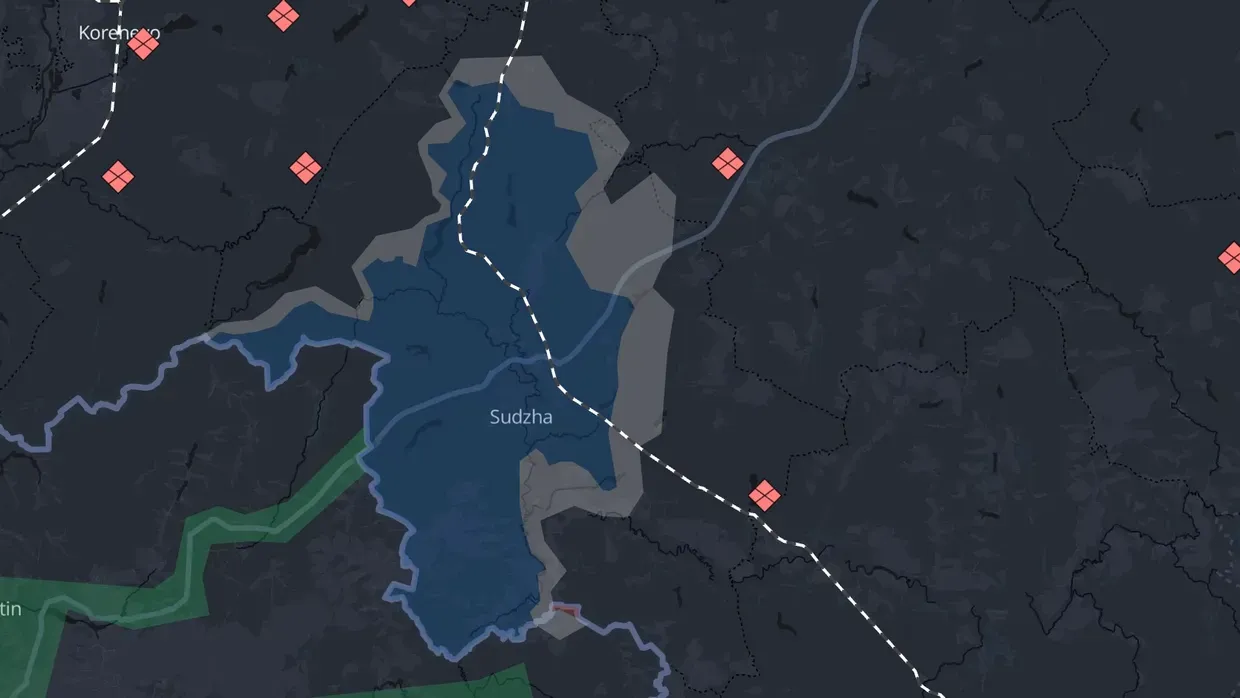
Ukraine launched a surprise cross-border incursion into Kursk Oblast in August 2024, initially capturing about 1,300 square kilometers (500 square miles) of Russian territory.
While Ukrainian forces have lost roughly half of that area, they recently advanced 2.5 kilometers (1.5 miles) in a new offensive.
Over six months of fighting in the region, Russian casualties have reached nearly 40,000 personnel, including over 16,000 killed, Ukraine's General Staff reported on Feb. Another 909 have been taken as prisoners of war.
Ukraine is likely looking to use its foothold in Kursk Oblast as leverage in potential peace talks.
Russia's forces in Kursk Oblast have been bolstered by North Korean troops, deployed last fall to help counter the Ukrainian incursion.
President Volodymyr Zelensky noted that the offensive disrupted Russia's ability to carry out large-scale operations in northeastern and southern Ukraine.
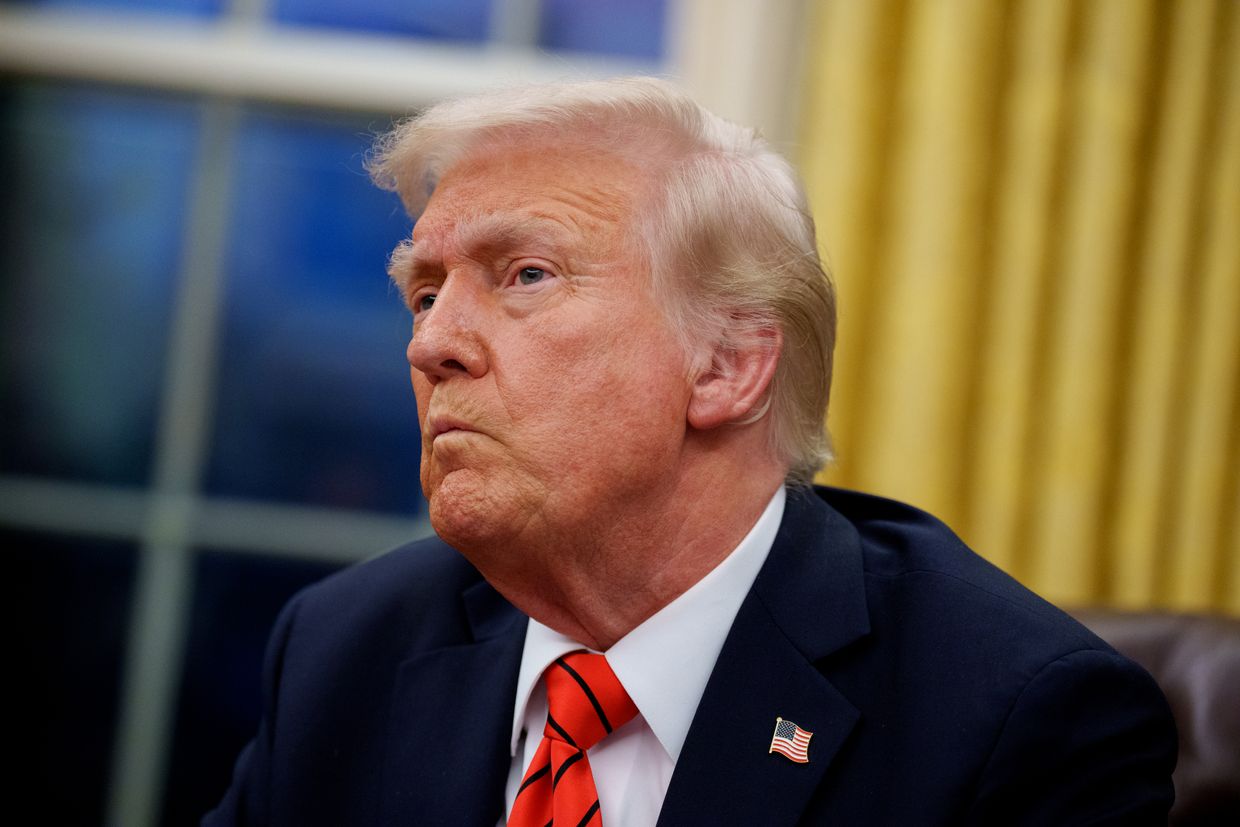
North Korean troops in Russia reportedly told they're fighting South Korean forces
North Korean security services are telling their troops stationed in Russia's Kursk Oblast that they are fighting against both the Ukrainian and South Korean militaries, South Korean newspaper Chosun Daily reported, citing captured North Korean soldiers.
Two North Korean prisoners of war, captured by Ukrainian forces last month, spoke exclusively to Chosun Daily at a prisoner-of-war (POW) camp in Ukraine.
One of the captives admitted that he and his fellow soldiers believed they were fighting South Korean troops, which heightened their morale and aggression.
Each battalion, consisting of about 500 soldiers, was monitored by one or two officers from North Korea's State Security Ministry, one of the prisoners said. These officers oversaw ideological training and discipline.
They reportedly informed their soldiers that Ukrainian drone operators were South Korean military personnel.
Seoul has not provided military aid to Kyiv since the beginning of Russia's full-scale invasion.
Up to 12,000 North Korean troops were deployed to Kursk Oblast last fall to support Russian forces in countering a Ukrainian incursion launched in August 2024.
Their journey to Russia took several months, with a group of 2,500 North Koreans departing on Oct. 10, 2024, traveling by train, then by plane, and finally by bus to Kursk, where they arrived in mid-December, according to one of the captives.
The other captured soldier, a sniper trained for reconnaissance, said contact between North Korean troops and Russian forces was minimal, with interaction mainly occurring at the command level for ammunition, supplies, and equipment.
President Volodymyr Zelensky previously reported that North Korean forces fighting for Russia had suffered 4,000 casualties, with two-thirds of the losses being soldiers killed.
Ukraine's military intelligence chief, Kyrylo Budanov, attributed the high losses to North Korea's lack of combat experience and its use of human wave attacks with limited equipment.
Ukraine's cross-border incursion into Kursk Oblast in August 2024 initially seized 1,300 square kilometers (500 square miles) of Russian territory.
While Ukrainian forces have since lost roughly half that area due to Russian counterattacks, they recently advanced 2.5 kilometers (1.5 miles) in a renewed offensive.
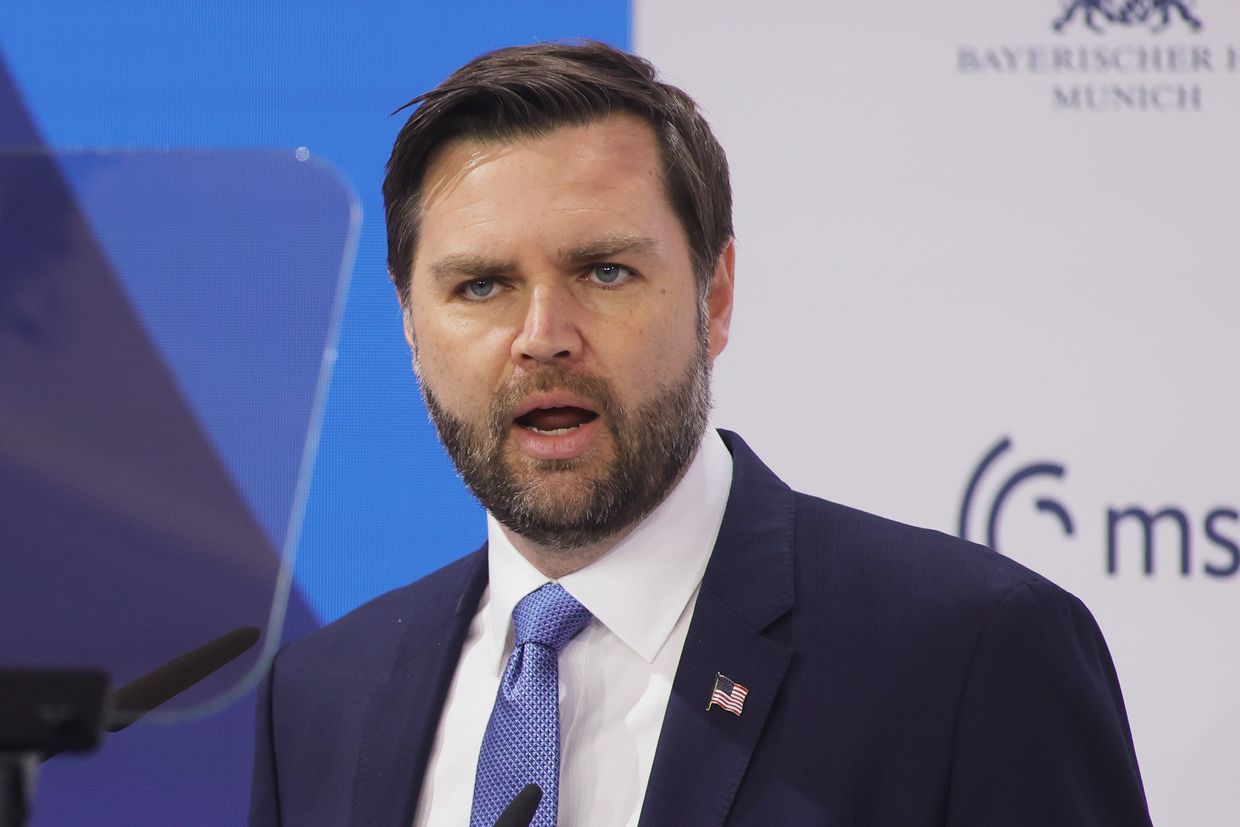
EU ambassadors agree on 16th package of Russia sanctions
EU ambassadors agreed on a new package of sanctions against Russia, targeting aluminum imports and the "shadow fleet" of oil tankers, Euronews reported on Feb. 19.
"I welcome the agreement on our 16th package of sanctions," European Commission President Ursula von der Leyen said on X.
"The EU is clamping down even harder on circumvention by targeting more vessels in Putin’s shadow fleet and imposing new import and export bans."
The EU has already adopted sanctions against some Russian aluminum products, with the latest measures also targeting primary aluminum. Russia represents around 6% of the EU's imports of the metal.
The "shadow fleet" denotes a flotilla of aging and poorly insured ships Russia uses to avoid sanctions on the oil trade. The West believes the vessels are used for other illicit activities, including espionage and sabotage.
The aluminum ban will be "phased in," while the package will also target 13 banks and other entities and individuals seen as helping Russia wage its full-scale war, the Financial Times reported.
EU Economy and Trade Commissioner Valdis Dombrovskis commented that Brussels must take greater control of its sanctions policy against Russia as U.S. priorities shift.
The EU approved its 15th sanctions package against Moscow on Dec. 16. The package targeted 54 individuals and 30 organizations from Russia, China, and North Korea, as well as shipping companies facilitating Russia's crude oil sales.
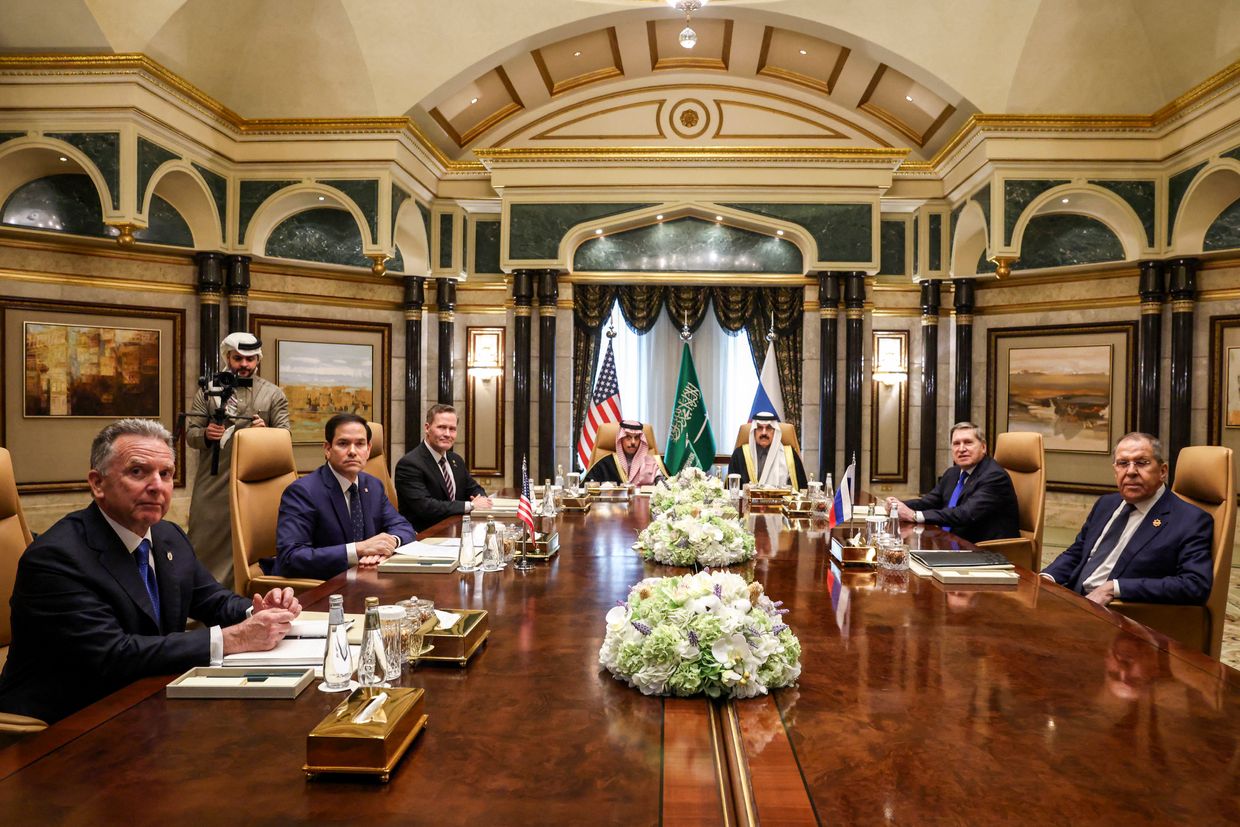
US promises Europe to maintain sanctions against Russia at least until Ukraine peace deal, Bloomberg reports
U.S. Secretary of State Marco Rubio assured European allies that the U.S. would maintain sanctions against Moscow at least until an agreement is reached to end the Russia-Ukraine war, Bloomberg reported on Feb. 19, citing its undisclosed sources.
In the nearly three years since the full-scale invasion, the U.S. has implemented several rounds of sanctions on Russia to undermine its efforts to continue its war in Ukraine. Restrictions have been imposed on banks, the gas and oil industries, and the delivery of dual-use goods, among other spheres.
Following talks between the U.S. and Russian delegations in Saudi Arabia on Feb. 18, Rubio suggested that lifting sanctions against Russia would be part of any peace process, saying that "concessions" would have to be made by "all sides" to bring an end to "any conflict."
Rubio added that the EU would "have to be at the table at some point because they have sanctions as well that have been imposed."
According to Bloomberg, Rubio subsequently assured European colleagues in a phone call that the sanctions would not be lifted at least until a settlement could be reached.
The State Department's readout on Rubio's call with European allies does not mention any sanctions but says that the countries "agreed to remain in close contact" as they work to achieve "a durable end to the conflict in Ukraine."
The role of European nations in the negotiations with Russia remains unclear. Trump's special envoy for Ukraine, Keith Kellogg, previously said that Europe would not be directly involved in the talks but assured that its interests would be considered.
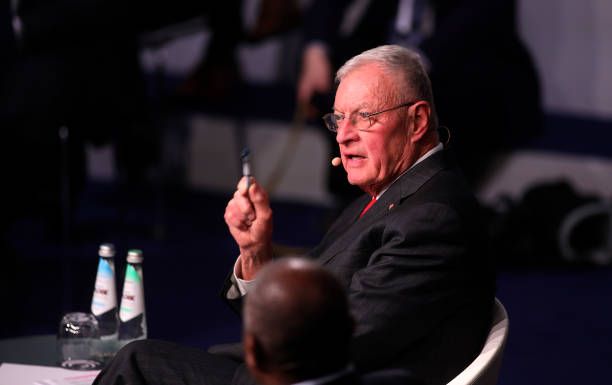
Putin would 'gladly' meet Trump, says war in Ukraine should be 'worked out' in advance
Russian President Vladimir Putin said on Feb. 19 that he had been briefed on the outcome of U.S.-Russian talks in Riyadh, expressing willingness to meet with U.S. President Donald Trump.
"Yes, I've been reported. I rate them highly. There is a result," Putin told Russian media.
He added that he would "gladly" meet with Trump but stressed that such a meeting must be carefully prepared. Putin emphasized that he seeks more than just a symbolic meeting, saying key issues, particularly the war in Ukraine, must be "worked out" in advance.
The Russian president also confirmed that Trump had told him Ukraine would be included in any negotiation process.
"President Trump told me during a telephone conversation, I can confirm that, of course, the United States assumes that the negotiation process will take place with the participation of Russia and Ukraine," he said.
Putin's remarks come after U.S. Secretary of State Marco Rubio led a delegation to Saudi Arabia on Feb. 18 for direct talks with Russian Foreign Minister Sergey Lavrov and other officials.
The meeting marked the first face-to-face negotiations between the U.S. and Russia since Moscow's full-scale invasion began. In response to the talks, President Volodymyr Zelensky postponed a planned visit to Saudi Arabia, expressing concerns over Ukraine's exclusion.
While no concrete decisions were announced, the U.S.-Russia meeting has raised alarms in Kyiv and Europe, where officials worry about being sidelined in the negotiation process.
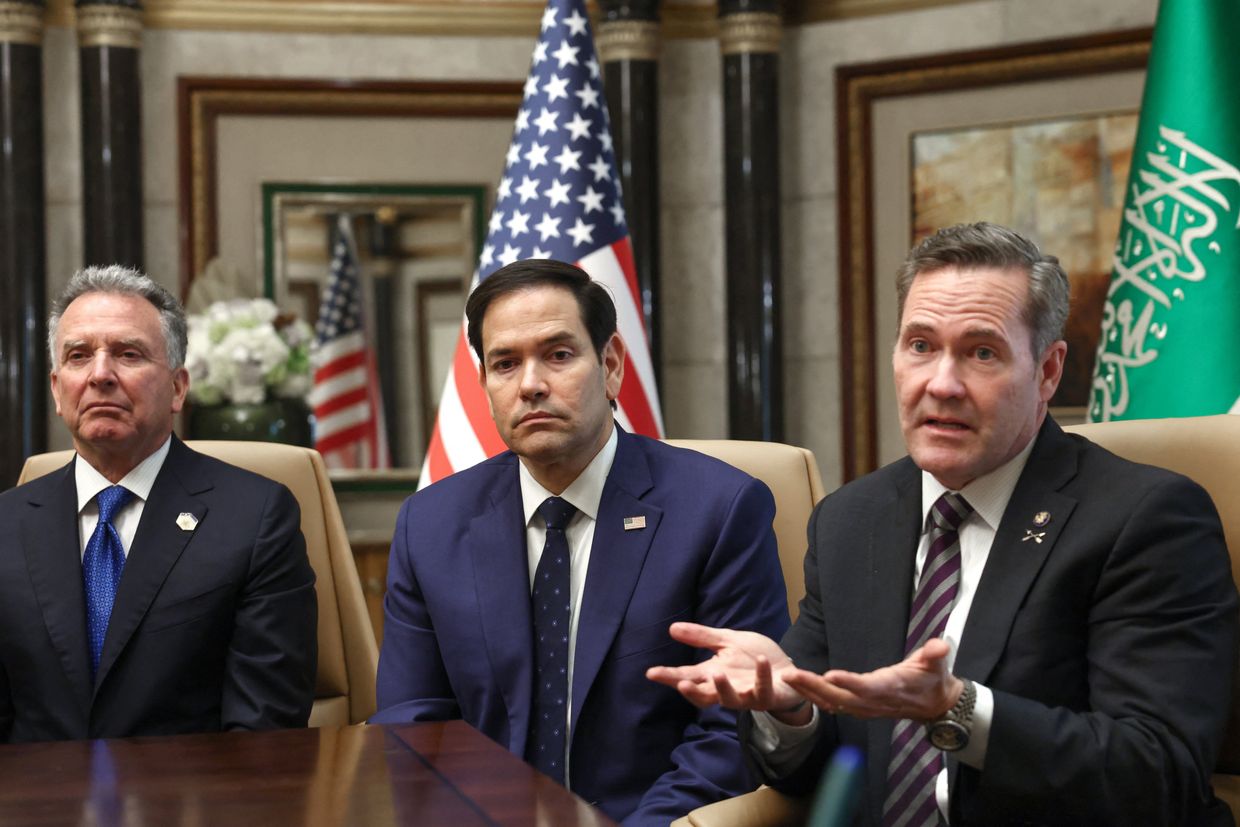
Lithuania's president unveils 6-point plan to support Ukraine, strengthen European security
Lithuanian President Gitanas Nauseda outlined a six-point action plan on Feb. 19 to support Ukraine and bolster European security as the U.S. sidelines Europe in talks with Russia to end the war, and concerns grow that negotiations could lead to a deal unfavorable to Kyiv.
"We must act now to support Ukraine and boost Europe's security. No more talk shops — time for action," Nauseda wrote on X.
His proposal includes security guarantees for Ukraine, emphasizing that "NATO membership should remain on the table." He also called for immediate funding for arms and a 10-billion-euro ($10.4 billion) investment in Ukraine's defense industry.
Nauseda stressed that Russia must be held accountable for war crimes, and sanctions should remain in place until its aggression ends, frozen assets are seized, and tariffs on Russian and Belarusian imports are implemented.
Over $300 billion of Russian central bank reserves remain frozen in Europe, including 191 billion euros ($198 billion) held in the Euroclear depository in Belgium.
The Lithuanian president also proposed accelerating Ukraine's EU accession, setting 2030 as the target date. "Ukraine's security is part of European security," he wrote.
Neither Ukraine nor Europe was invited to talks between U.S. and Russian officials in Saudi Arabia on Feb. 18. The move has set off alarm bells that the U.S. and Russia could reach an agreement on the war without Ukraine or Europe's involvement, and one that would put their future security in jeopardy.
The future of U.S. assistance for Ukraine under President Donald Trump's administration is also uncertain.
U.S. Defense Secretary Pete Hegseth on Feb. 12 also suggested that Ukraine's NATO membership is not a "realistic outcome" of ongoing negotiations and that Ukraine may not be able to fully restore its 2014 borders.
Ukraine has maintained that firm security guarantees — including NATO membership — are necessary to prevent Russia from rebuilding its military and potentially launching a new invasion if hostilities were to pause.
President Volodymyr Zelensky previously called NATO membership the "cheapest" security guarantee and a geopolitical victory for U.S. President Donald Trump.
Note from the author:
Ukraine War Latest is put together by the Kyiv Independent news desk team, who keep you informed 24 hours a day, seven days a week. If you value our work and want to ensure we have the resources to continue, join the Kyiv Independent community.



